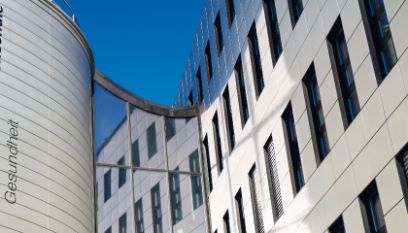Focus areas
The Master's degree program in Healthcare Leadership was developed specifically for healthcare professionals in collaboration with the Insel Group's Directorate of Nursing. The program expands your competencies and skills in five module groups. In these, you will deepen your knowledge of healthcare management, the basics of healthcare economics, applied statistics and research methods. The focus of the course is on leadership and management. You will complete your studies with a Master's thesis.
What you stand to gain from this degree programme
With a Master of Science in Healthcare Leadership, you are ready to take on a new role in healthcare.
You will acquire in-depth and cross-functional expertise. Through modules such as Strategic Thinking and Strategic Action or Leadership and Management, you will develop an informed understanding of leadership and organisational development, enabling you to master the challenges of healthcare delivery. Upon completion of your master’s programme, you will be equipped to develop, steer and optimise complex processes and organisational structures in the healthcare sector on your own.





















